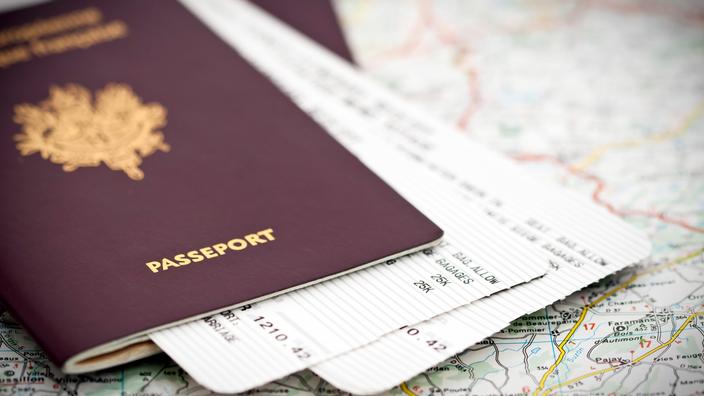During normal periods, that is to say outside the Covid-19 crisis, half of the passengers bought their mainline train tickets in the seven days preceding their departure.
But the virus will have upset this rule, which has been well established for several years.
Now, two thirds, or even three quarters of passengers depending on the line, buy their tickets at the last minute.
This behavior will force
SNCF
to review its price range, as well as the way in which it sets prices.
In the air, as in the rail, when it comes to a departure for abroad, the proportion of passengers buying their tickets in the seven days which precede the departure naturally decreases.
At
Transavia
for example, which displays primarily leisure destinations, this figure is normally 20%.
But it has been almost doubled since the Covid crisis.
A phenomenon undoubtedly encouraged by the fact that most airlines or railways have made their tickets modifiable, exchangeable and refundable free of charge.
Read also: Do you have a plane or train ticket?
How to avoid the “no show” trap
In the proportion of passengers buying at the last minute, we must also take into account the percentage of “
leisure
” or “
business
”
passengers
.
In most cases, travelers plan their weekends in Barcelona much more in advance than those who go to Marseille or Montpellier for a business meeting.
Return of penalties for changing last-minute tickets
However, each company has its own rules.
More or less flexible, more or less restrictive.
For example,
easyJet
has reintroduced a penalty of 59 € for flight changes within 14 days of departure, in addition to the fare adjustment.
Air France
accepts changes without penalty, with readjustment however until March 31, 2021.
Finally,
at
Transavia
, changes are possible until October 31.
At the SNCF, the fateful date is January 4, 2021, from which date the penalties of € 15 for changing last-minute tickets three days before departure will be effective again.
(Remember that the amount of this penalty had tripled when the Advantage cards were launched, which ultimately have many drawbacks!) The SNCF thus takes the risky bet of returning to its pre-crisis conditions, no doubt thinking that travel needs will be such that passengers will accept these penalties.
Read also: Planes and trains: the new price conditions are being put in place
Take the example of a Paris-Biarritz operated by these four carriers: easyJet, SNCF, Air France, Transavia.
Will a passenger not have an interest in choosing the most flexible carrier possible?
Being able to change tickets is indeed a real advantage and restrictive conditions are a barrier to purchasing.
A fact made all the more evident by the Covid crisis, which carriers have come to recognize, despite themselves.
So, to bring passengers back, they revised their rules.
Which of them will remain the most flexible and which will again dare the penalties?
The future will tell.
From the carrier's point of view, the deterrent effect of the penalty greatly facilitates operation.
However, the multiplication of restrictions remains difficult to understand since when a passenger changes his ticket as departure approaches, in most cases he buys a more expensive ticket and frees up a seat which can be resold at a high price.
Why then penalize him?
Read also: Air France: what will the domestic network of tomorrow look like for passengers?
Up to 100 fares on a flight or a train
France is one of the countries in the world which has pushed for the obligation of reservations for trains the most.
Tobias Arhelger - stock.adobe.com
All companies will be forced to review what is called Yield management, that is to say the way in which they set the prices which have become over the years so complex that users do not. find more.
So think: on a flight or on a train, there are sometimes up to 100 prices!
With restrictions for changes which are gas works of rare complexity.
This obviously forces the passenger to go through numerous and laborious manipulations to change flights or trains.
This heavy constraint partly explains the fact that the private car retains significant market shares.
France is one of the countries in the world which has pushed for the obligation of reservations for trains the most.
SNCF explaining that it was to be able to offer the greatest number of low prices, while at the same time the TGV has the reputation of being expensive.
Other countries have adopted more flexible systems such as Switzerland or Germany by offering cheap tickets with restrictions, and slightly more expensive tickets guaranteeing the greatest freedom of access to the train.
Those who will do well will be those who dare the simplest pricing with easy and cheap changes.
IN VIDEO - “French, take your train tickets!”, Launches the president of the SNCF group
In their reflection on their Yield, companies will also have to consider the issue of price increases as the departure date approaches.
Selling a ticket at a high price because it is three days before departure when the flight or train is empty is one of these aberrations incomprehensible to travelers.
A general simplification of the system will be necessary, with prices readable and understandable by passengers as in the past with the blue, white and red calendars of the SNCF or Air Inter.
Even if internally, the Yield management departments are fiercely opposed to this development.
We understand them: it is their raison d'être that is being called into question.












